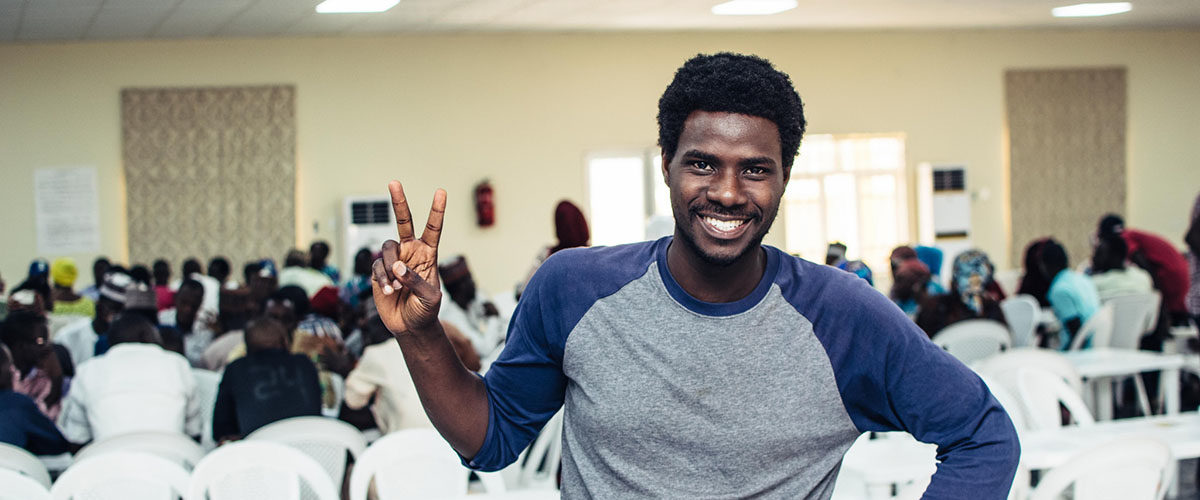As building capacity of government officials, CSOs and journalist remains important in the data liberation evangelism, the Follow The Money team focused more on their data expedition class on Open Data Day held at CODE with 28 participants. They include government officials from Nigeria Extractive Industries Transparency Initiative [NEITI], National Space Research and Development Agency [NASRDA], and the FCT Mass Education Board, participants from the private sector, the media and CSOs. With Oludotun Babayemi, a data enthusiast taking the participant through basics of data design, data cleaning and publishing data, participants were thrilled having insights on how to use data to tell stories “I have been bundle with so much information today, and I appreciate this session, I now know where to get data from and how to use spreadsheet for collaboration” explained an excited Chinyere Opia from HOT FM
Demonstrating the practical session at the Education Hackathon was quite strategic to use in complimenting the practical sessions that went into training participants on sorting, filtering and cleaning data. The Hackathon allowed participants to filter and sort Nigeria data on Education within datasets downloaded from the World Bank project sites, and also update mapping of funds from the budget office on capital expenditures meant for federal education institutions in Nigeria. [LOOK] how one of the participant described #ODDAbuja
In Nigeria, billions of Naira has been spent [through government spending and international aid] on infrastructures on education that, often wouldn’t reach the community [Please read achieving the MDG goals in Nigeria] that it was meant for. “Infact we have many challenges, One I will like to say is government providing books and infrastructures that will make the children to learn, and also levies on children which at times they might not be able to afford” says Blessing Hassana [Watch the video], Principal of a secondary school in Nasarawa state [that’s a state just 20km away from the capital city, Abuja], what will happen in other states? Perhaps, this says much about why there are still about 10 million out of school children in Nigeria.
With the Education Budget Tracker still being curated for government spending and international aid, the strategy is to focus on how many education projects are operational in these communities. This Education Budget Tracker which allows for education point mapping has huge potential as an effective monitoring and management tool for planning and decision making. It can really help government and funding agencies to know where to focus more on. Some places might need infrastructure, while some its maintenance and others might be training.
In this way, the Ministry of Education and other donor agencies will be able to monitor the impact of its large investments in the education sector. It will also allow transparent tariff settings that reward good performance and highlight inefficiencies. Moreover, it is interesting to know that this tool allows trusted local people to provide information about the education service delivery in their communities using their mobile phones. “Going forward for us, the Follow the Money team is seeking partnership with interested entities to pilot the usage of this tool in one of the states with poor education performance index in northern Nigeria” says Hamzat Lawal while demonstrating how we intend to use the tool to participants.
The Open Data Day evening session started with a brief introduction of the Digital Humanitarian Network and how its members have been using technologies before, during and after emergencies. How CODE intends to engage organizations and communities interested in emergency response across the West African region using technology was highlighted and some government participants were quite interested and keen in how CODE will integrate crisis mapping into their situation awareness room. “It is quite interesting to know that CODE is leading innovative ideas in the region to help in early warning and emergency response, it will be great to showcase this to the National Emergency Management Agency [NEMA]” advised Godstime James of the National Agency for Space Research and Development.
